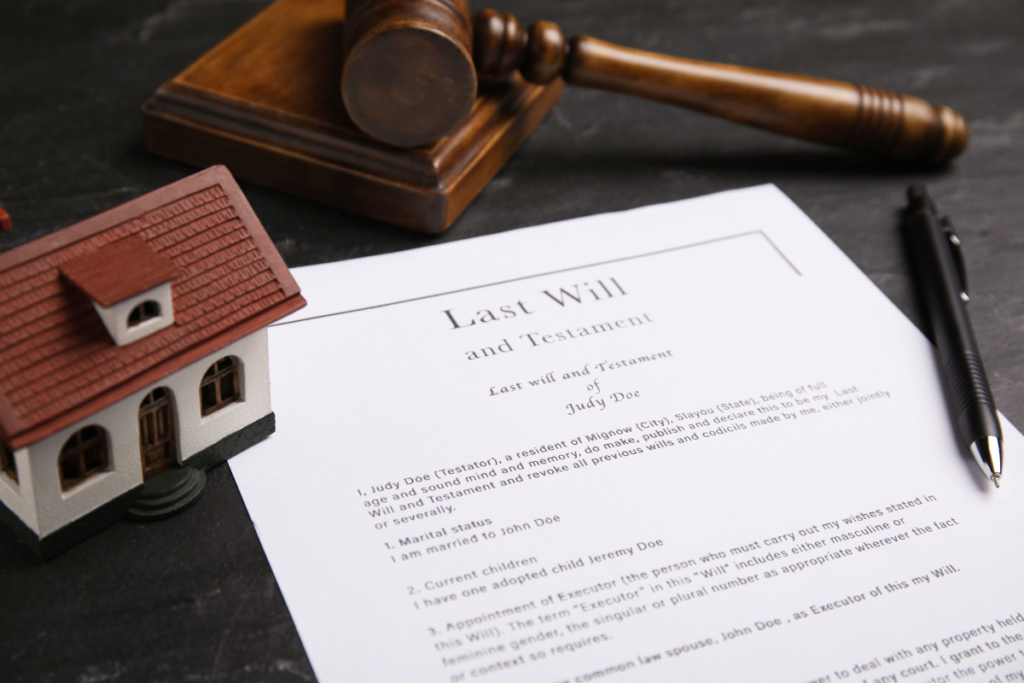Buying a home is one of the biggest milestones in a person’s life. It’s a clear sign of long-term financial commitment and future-focused thinking. But it also opens the door to questions about how to protect that investment, and what would happen to it if the owner were no longer around.
For estate planning providers and solicitors, this moment is a perfect opportunity to start the conversation. There’s a strong link between homeownership and estate planning, and the timing couldn’t be better to guide clients toward writing a will.
What we’ll cover
Why homeownership prompts estate planning decisions
Many people don’t consider estate planning until a major life event gives them a reason.
And for most, buying a home is that moment.
A home is more than bricks and mortar
For new homeowners, a property represents more than just a place to live.
It’s an asset, an investment, and often a financial legacy. Once someone has made that kind of purchase, they start to think about how to protect it, and who would inherit it if something happened.
This is where estate planning becomes part of the conversation.
Homeowners are more open to discussing wills and inheritance because they now have something valuable to pass on.
Ownership changes financial responsibilities
With a mortgage and other home-related costs, people often become more aware of the need for financial planning.
They think about their partner, children, or even future family. That sense of responsibility makes them more likely to consider writing a will.
It’s also worth noting that mortgage lenders sometimes ask whether the borrower has made estate plans.
This prompts even more buyers to start thinking seriously about the issue.
The link between homeownership and estate planning
The connection between owning a property and thinking about the future isn’t just anecdotal; it’s backed by behaviour.
Property ownership increases a person’s awareness of what they stand to lose – and what their family could lose – if they pass away without making proper arrangements.
It’s no surprise then that many estate planning services focus on new homeowners as part of their marketing and outreach strategy.
Homeowners want control over what happens next
One of the biggest motivators for estate planning is control. People want to decide what happens to their property, who benefits, and how it’s managed.
Without a will, the courts decide through intestacy laws. And many clients are surprised to learn that their assets won’t automatically go to their partner or children unless legally documented. This reality often creates the urgency needed to act.
Estate planning services that clearly explain these consequences are more likely to convert interest into action – especially if the messaging is tailored to recent homebuyers.
How to position estate planning for new homeowners
To turn new homeowners into clients, you need to upsell estate planning as relevant, timely, and easier than they think.
Keep it practical and personal
Homeowners are juggling a lot: mortgages, bills, maybe even renovations. The last thing they want is a complex legal pitch. Instead, focus on real-world situations.
For example, ask:
“If something happened to you, would your family be able to keep the home?”
Or:
“Have you decided who would inherit your property or how it would be managed?”
These are not just good conversation starters—they’re also effective selling will writing services strategies that create engagement from the very first call.
Offer guidance without pressure
Estate planning can feel intimidating. Many people delay writing a will because they think it’s time-consuming, expensive, or only for the wealthy.
By explaining that the process is simple, affordable, and beneficial at any stage of life, you make it easier for them to say yes. Offering free resources or an initial consultation also lowers the barrier to entry.
Tailoring your outreach to the right audience
Not every homeowner is ready to write a will, but the ones who are tend to be more responsive to well-timed contact.
Use data to identify the best leads
Targeting new mortgage holders or recent homebuyers puts you in front of people who are more likely to act. These clients are already thinking about the future and are more receptive to conversations about protecting their estate.
That’s why working with phone-verified estate planning leads gives you a major advantage. These prospects have already shown interest, making your outreach more efficient and more effective.
Timing matters just as much as messaging
The best time to approach a homeowner is shortly after they’ve bought a property or updated their mortgage. They’re in planning mode and more willing to take the next step in protecting their assets.
If you wait too long, they may lose interest or push it to the bottom of their to-do list. But if you catch them while they’re still actively making financial decisions, you’re far more likely to secure their trust, and their business.
Final thoughts
The link between homeownership and estate planning is clear. When someone buys a home, they naturally start thinking about what would happen to it if they weren’t around. That mindset shift creates a perfect opportunity for estate planning providers to step in and offer real value.
By focusing on timing, clarity, and relevance, you can turn homeowners into long-term clients. And by understanding why people delay writing a will, you can offer the support and reassurance they need to move forward.
If you’re looking to build stronger campaigns, remember that estate planning for new homeowners isn’t just smart, it’s effective. Combine this with qualified outreach and you’ll be reaching people when they’re most ready to act. That’s how homeowners and estate planning become a perfect match.




